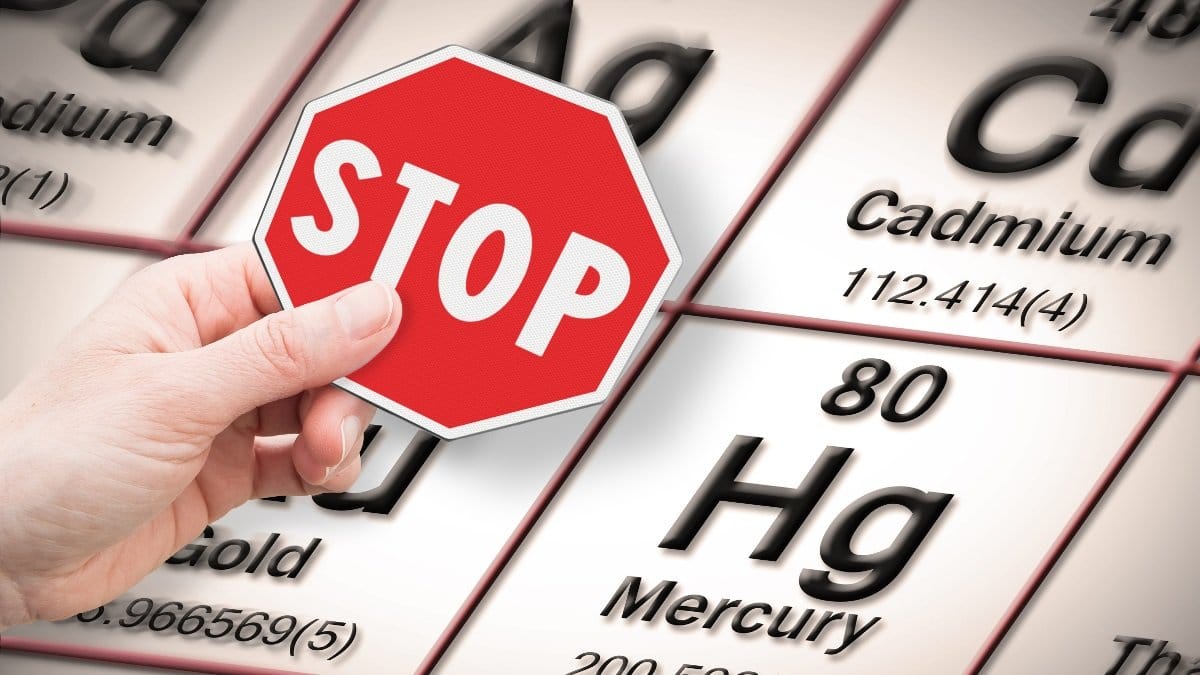Do you realize how much heavy metal is in your body?
We get heavy metals into the body through food, cosmetic products applied to the skin, using pots and pans, and also at the workplace (especially in laboratories, warehouses, airports, …). They are especially abundant in large fish, those at the top of the food chain. Big tuna lovers, yeah, you should definitely keep reading.
We have got a completely natural and, on top of everything, an extremely healthy superfood, which, among other things, also removes heavy metals from the digestive tract.
It is the Bio Wakame algae.
What is the issue with heavy metals?
The problem with heavy metals is that they slowly accumulate in the body and cause irreparable damage. The symptoms may be mild at first, so people don’t know the cause of their problems, but by the time they become aware, it’s too late. It is best to identify them early and take immediate action – prevention is still better than cure.
Where do we find the most common heavy metals we are in regular contact with?
Aluminium is also found in most industrially processed foods, aluminium pots, pans, deodorants, shampoos, moisturizers.
Cadmium is found in car seat covers, black rubber, reusable motor oil, ceramics, evaporated milk, fertilizers, floor coverings, fungicides, furniture, refined white flour and soft drinks from vending machines made from tubes containing cadmium.
Lead is found in cigarette smoke (passive smoking too), canned food, colourful and smooth newspaper, some ceramic containers, wall paints in older homes, lead pipes in older buildings, and refined chocolate. Lead exposure can cause dementia and Alzheimer’s disease, learning difficulties, seizures, aggression, hyperactivity and many other health problems.
Mercury is certainly still found in amalgam dental fillings, vaccines and fish, especially farmed.
Organic Wakame algae is exceptional because it naturally removes heavy metals from the digestive tract, while also reducing radioactivity in the body. It is anti-inflammatory and lowers cholesterol. It is also useful in regulating thyroid function, has a high content of omega 3 fats, fibre, calcium and magnesium.
Wakame is a sea vegetable, edible algae that has a slightly sweet taste and is most commonly used in soups or salads. The algae is thin and dark green in colour. It is often used in Japanese and other Asian cuisines. So why not try this great superfood and do something great for your body?
How to make it?
Wakame is a sea vegetable, edible algae that has a slightly sweet taste and is most commonly used in soups or salads. The algae is thin and dark green in colour. It is often used in Japanese and other Asian cuisines. So why not try this great superfood and do something nice for your body?
Health effects of Wakame algae superfood
Magnesium is essential for the contraction and relaxation of muscles, the action of certain enzymes in the body, the production and transport of energy, and the production of proteins.
Iodine for strong cell metabolism – the process of converting food into energy. Maintains a balanced amount of thyroid hormone.
Wakame calcium facilitates the absorption of calcium into the body. Every 100g of fresh Wakame algae contains 150mg of calcium. Calcium is needed for strong and healthy bones as it prevents osteoporosis.
Iron is needed to form red blood cells and prevent anaemia.
Vitamins A, C, E and K. Great for healthy skin and immunity.
Vitamin D promotes calcium absorption for healthy bones, strengthens the nervous, muscular and immune systems.
Riboflavin (vitamin B2) is crucial so that the body can consume the carbohydrates, fats and proteins we ingest. Riboflavin helps convert these nutrients into energy for growth and the formation of red blood cells. It acts as an antioxidant and interacts with other vitamins in the body, such as. niacin, folate and vitamin B6.
Folate helps create new cells and is especially important for pregnant women.
Lignans play an important role in preventing certain cancers, especially breast cancer.
